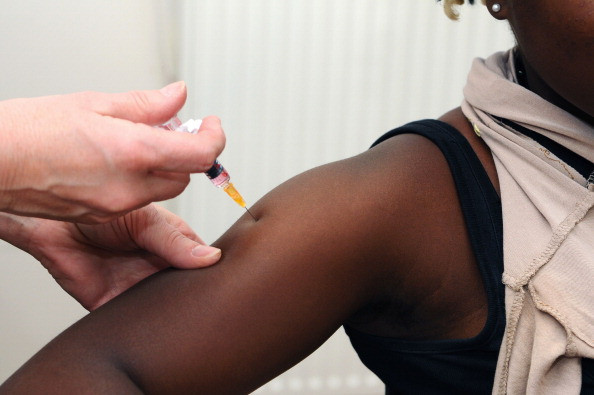Anti-vaccination attitudes linked to US measles and whooping cough cases

In the US, most of the people who are infected during a measles or pertussis outbreak had intentionally decided to not be vaccinated against the diseases, a study claims. In the case of measles, more than half of the individuals who fell sick had never received the vaccine, despite vaccination coverage being strongly recommended by the CDC.
As for pertussis, also known as whooping cough, the study stresses that non-vaccination has influenced the development of outbreaks, even though vaccinated people also may become less protected as time goes by.
Published in the JAMA on 15 March 2016, the research analyses different reports of US measles outbreaks that have occurred since 2000, when the disease was declared eliminated from the country. It also looks at endemic and epidemic pertussis episodes since 1977, the year when incidence reached its lowest level. Data gathered in both cases appear to show a link between vaccine delay, refusal, or exemption and the risk of getting measles or pertussis.
Measles vaccination rejection
The CDC says a measles vaccination is approximately 93% effective against the disease, and this rises to 97% with second injection. In total, the researchers identified 1,476 cases of measles in the country.
57% had no history of vaccination against the disease. Available data further indicate that 574 of those had been eligible for vaccination, but had chosen reject the vaccine. Among them, 71% justified this with non-medical exemptions, in particular for religious reasons.
Pertussis immunity waning
In the case of pertussis, the study identifies 32 outbreak reports, during which 10,609 individuals fell sick. Here the conclusions are a bit different than for measles.
Though unvaccinated individuals make up a large number of those who were affected (up to 45% in the most serious outbreaks), some pertussis epidemics also happened within vaccinated populations, suggesting people's immunity may be waning overtime. Between 59% and 93% of people with no history of pertussis vaccination had intentionally decided not to get vaccinated.
A call for public policy
In the US, the debate over non vaccination is not new. Health authorities are increasingly confronted by vaccine refusal and hesitancy, and to a strong anti-vaccination movement.
Although vaccination is not mandatory and no federal law exists, all US states have some form of legislation to prevent children from entering public schools if they have not been vaccinated. However, only three states do not allow exemptions for religious or philosophical reasons.
The authors say their study brings new evidence of the need for strong public policies both to increase vaccination coverage or to tackle waning immunity.
In an editorial commenting on this latest research, Matthew M. Davis, a scientist from the University of Michigan, summed up the challenges ahead: "Current challenges with measles and pertussis outbreaks provide an opportunity to develop and evaluate approaches to achieve unprecedented levels of vaccination coverage, limit waning immunity, and minimize vaccine-preventable disease for children and adults alike".
© Copyright IBTimes 2025. All rights reserved.






















